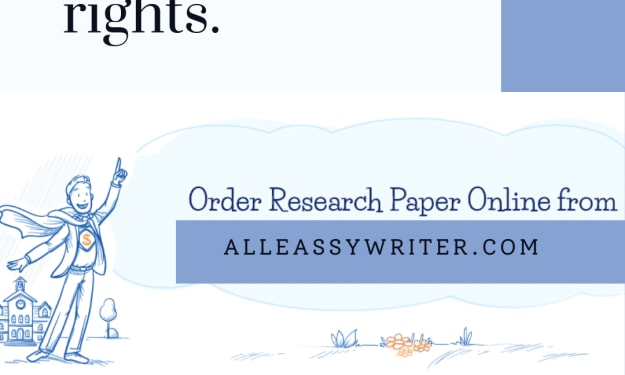The Disadvantages of Government to Society
An In-Depth Analysis

Governments are fundamental institutions designed to maintain order, provide public services, and protect the rights of citizens. However, despite their essential roles, governments can sometimes impose significant disadvantages on society. This article explores the various ways in which government actions can negatively impact social, economic, and individual well-being. Through an examination of bureaucracy, corruption, regulatory overreach, and civil liberties, we will highlight the potential drawbacks of governmental power.
Bureaucratic Inefficiencies and Red Tape.
1. Operational Inefficiencies.
Bureaucracy is a hallmark of governmental operation, characterized by hierarchical structures and rigid rules. While these systems are intended to ensure consistency and accountability, they often lead to significant inefficiencies.
- Slow Decision-Making: Bureaucratic procedures can slow down decision-making processes, resulting in delays in public service delivery. For example, obtaining necessary permits and licenses for business operations can take months, stifling economic activity and innovation.
- Resource Misallocation: The complexity of bureaucratic systems can lead to resource misallocation. Funds intended for public services may be squandered on administrative costs rather than reaching those in need.
2. Stifling Innovation.
Excessive bureaucracy can also stifle innovation by creating an environment resistant to change.
- Innovation Barrier: Entrepreneurs and innovators often face significant challenges in navigating regulatory landscapes. Complex rules and lengthy approval processes can deter new business ventures and technological advancements.
- Public Sector Lag: Government agencies may lag behind the private sector in adopting new technologies and practices due to bureaucratic inertia. This lag can result in outdated public services that fail to meet the evolving needs of society.
Corruption and Misuse of Power.
1. Erosion of Trust.
Corruption within government erodes public trust and undermines the legitimacy of state institutions.
- Transparency Issues: When government officials engage in corrupt practices, such as bribery, embezzlement, and favoritism, transparency suffers. The lack of accountability fosters a culture of mistrust and cynicism among citizens.
- Inequality: Corruption often disproportionately affects marginalized communities, as those with resources can bribe officials for favorable treatment, while others are left to navigate a system stacked against them.
2. Economic Costs.
The economic impact of corruption is profound, affecting both national and local economies.
- Investment Deterrent: Corruption can deter both domestic and foreign investment. Investors are wary of environments where legal protections are uncertain, and corrupt practices are prevalent.
- Public Resources: Funds that could be used for infrastructure, education, and healthcare are often diverted into the pockets of corrupt officials. This diversion reduces the quality and availability of essential public services.
Regulatory Overreach.
1. Economic Impediments.
While regulations are necessary to ensure safety and fairness, excessive regulation can hinder economic growth.
- Small Business Burden: Small businesses, in particular, can be disproportionately affected by regulatory overreach. Compliance costs for regulations, such as environmental standards, labor laws, and safety requirements, can be prohibitively high for small enterprises.
- Market Distortion: Overregulation can distort markets by creating barriers to entry and limiting competition. This distortion can lead to higher prices and reduced choices for consumers.
2. Innovation Suppression.
Stringent regulations can suppress innovation by creating high compliance costs and stifling creative problem-solving.
- Technology Development: Innovators in fields such as biotechnology, telecommunications, and energy often face regulatory hurdles that delay the introduction of new technologies. These delays can impede progress and reduce the competitiveness of domestic industries.
- Research Restrictions: Excessive regulations can limit scientific research and development. Researchers may be constrained by ethical, environmental, or safety regulations that, while well-intentioned, hinder the advancement of knowledge and technology.
Infringement of Civil Liberties.
1. Surveillance and Privacy.
Government actions aimed at ensuring security can sometimes infringe on individual privacy and civil liberties.
- Mass Surveillance: Programs designed to monitor and collect data on citizens can lead to a significant invasion of privacy. The justification of national security often overshadows concerns about individual freedoms.
- Data Misuse: Collected data can be misused or fall into the wrong hands, leading to potential abuses of power and harm to individuals' reputations and freedoms.
2. Freedom of Expression.
Governments may impose restrictions on freedom of expression, stifling dissent and democratic engagement.
- Censorship: Efforts to control the flow of information, whether through direct censorship or more subtle forms of media manipulation, can suppress dissenting voices and limit public debate on important issues.
- Repression: In extreme cases, governments may use their power to repress political opposition and activists. This repression can result in human rights abuses and undermine democratic principles.
Balancing Government Power and Societal Needs.
Given these potential disadvantages, it is crucial to find a balance between the necessary functions of government and the preservation of individual freedoms and societal well-being. Here are some strategies to mitigate the negative impacts of government actions:
1. Promoting Transparency and Accountability.
- Anti-Corruption Measures: Implementing strong anti-corruption measures, including transparent bidding processes, stringent audits, and robust legal frameworks, can reduce the prevalence of corrupt practices.
- Public Oversight: Encouraging public oversight through independent watchdog organizations, free press, and civic engagement can help hold government officials accountable for their actions.
2. Streamlining Bureaucracy.
- Administrative Reforms: Simplifying bureaucratic processes and reducing unnecessary red tape can improve efficiency and service delivery. Digitalization and e-governance initiatives can play a significant role in this regard.
- Decentralization: Decentralizing government functions to local levels can bring decision-making closer to the people, potentially increasing efficiency and responsiveness to local needs.
3. Balanced Regulation.
- Risk-Based Approach: Adopting a risk-based approach to regulation, where the level of regulatory oversight is proportional to the potential risks involved, can help balance safety and innovation.
- Stakeholder Engagement: Involving stakeholders, including businesses, researchers, and the public, in the regulatory process can ensure that regulations are practical and not overly burdensome.
4. Protecting Civil Liberties.
- Privacy Safeguards: Establishing clear safeguards for privacy and limiting the scope of surveillance programs can help protect individual freedoms.
- Freedom of Information: Upholding freedom of information laws and protecting whistleblowers can ensure that government actions are transparent and open to scrutiny.
Conclusion
While governments play a vital role in maintaining order, providing public services, and protecting citizens, their actions can sometimes have adverse effects on society. Bureaucratic inefficiencies, corruption, regulatory overreach, and infringements on civil liberties are significant concerns that need to be addressed to ensure that governmental power is exercised responsibly and equitably. By promoting transparency, streamlining bureaucracy, balancing regulation, and protecting civil liberties, we can mitigate these disadvantages and create a more effective and just governance system.
About the Creator
Samson E. Gifted
SEG, is a talented writer, editor, and publisher known for his exceptional storytelling and keen eye for detail. With a passion for words and a commitment to excellence earning a reputation as a respected figure in the publishing industry.
Enjoyed the story? Support the Creator.
Subscribe for free to receive all their stories in your feed. You could also pledge your support or give them a one-off tip, letting them know you appreciate their work.






Comments
There are no comments for this story
Be the first to respond and start the conversation.